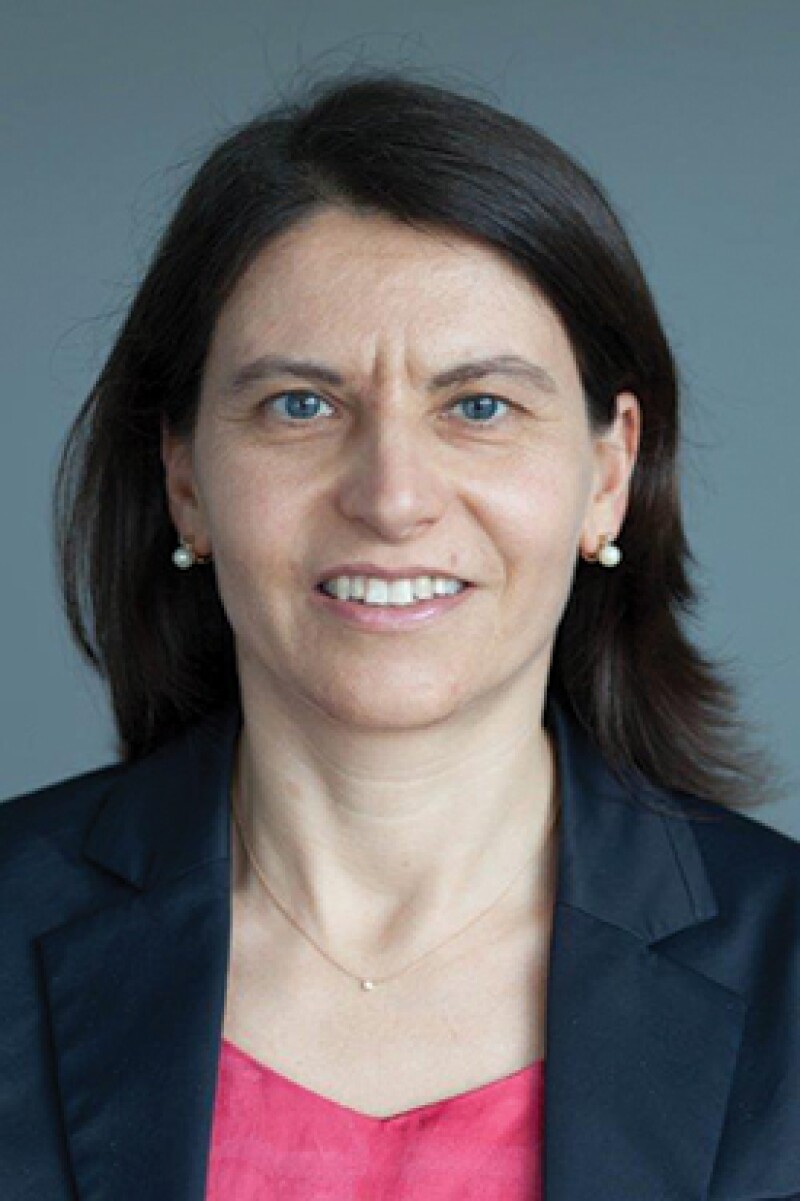
|
Maria Teresa Fabregas Fernandez is a new entry this year |
Maria Teresa Fabregas Fernandez took over the European Commission's top indirect tax job from Donato Raponi in March, and is tasked with delivering an ambitious set of reforms.
She studied law, international relations and economics at institutions in France, Spain, Switzerland and the UK before starting work in the field of legislation for industrial goods.
"I joined the Commission 20 years ago," she tells International Tax Review. "I've been dealing with several different fields of EU policy: enterprise policy, internal market, trade and financial services."
She has previously worked as the head of the securities markets unit, leading a team of 16 working on policy development. Throughout that period she worked with financial regulators, consumer groups, NGOs, investors, industry and more. She also headed up the financial markets infrastructure division for the Commission.
"The thing I am most proud of is contributing to the building of a new European legal framework in different fields. In the last 10 years of my career I was very closely involved in the development and negotiation of the new revised legal framework on financial infrastructure, meaning the regulation of stock exchanges, derivative markets and financial markets in general," she says.
"I was also involved in some pieces of legislation relating to, for instance, market abuse in financial markets and financial benchmarks legislation," she adds. "All in all, I was involved in the modernisation of the legal framework for financial services in the European Union – and we succeeded! So now, moving into this new position in taxation, we are again starting a process where we are trying to reform our European legal framework. I hope that we will be as successful as we have managed to be in the financial services area in modernising."
The Commission wants to bring the whole of the EU together to become a single VAT area, uniting member states even further for VAT purposes. The success of the 2015 changes – which shifted e-services, broadcasting and telecommunications to the destination principle – has emboldened the EC, which will now roll out the change, along with other reforms aimed at combating fraud, to the rest of the economy.
By doing this, it believes that it can reduce compliance costs for companies by €1 billion ($1.2 billion) per year, and much of this saving will come through an expanded one-stop shop, following the success of the mini one-stop shop from the 2015 changes.
"Today, for a company, it is 11% more expensive to deal cross-border than to deal domestically," says Fabregas. "With the one-stop-shop we'll be able to close that gap in terms of not penalising those who want to go cross-border within the European Union.
Just suggesting these proposals has started a lot of conversations among businesses and practitioners, who seem largely in agreement that the changes would be an improvement from the EU's outdated VAT system – but the biggest challenge for Fabregas and the EC as a whole will be achieving political consensus.
"Moving into the taxation field is extremely important for me," says Fabregas. "Why? Because it's the revenues that member states get through their tax systems that mean we can function, not just through the EU budget, but that healthcare, education and infrastructure can be provided to all European citizens in all member states."
As Fabregas grows into her role, she is becoming one of the most important names in VAT in the world.
The Global Tax 50 2017 |
|
|---|---|
The top 10 • Ranked in order of influence |
|
6. Arun Jaitley |
|
The remaining 40 • In alphabetic order |
|
| The Estonian presidency of the Council of the European Union |
|
| International Consortium of Investigative Journalists (ICIJ) |
|
| United Nations Committee of Experts on International Cooperation in Tax Matters |
|









